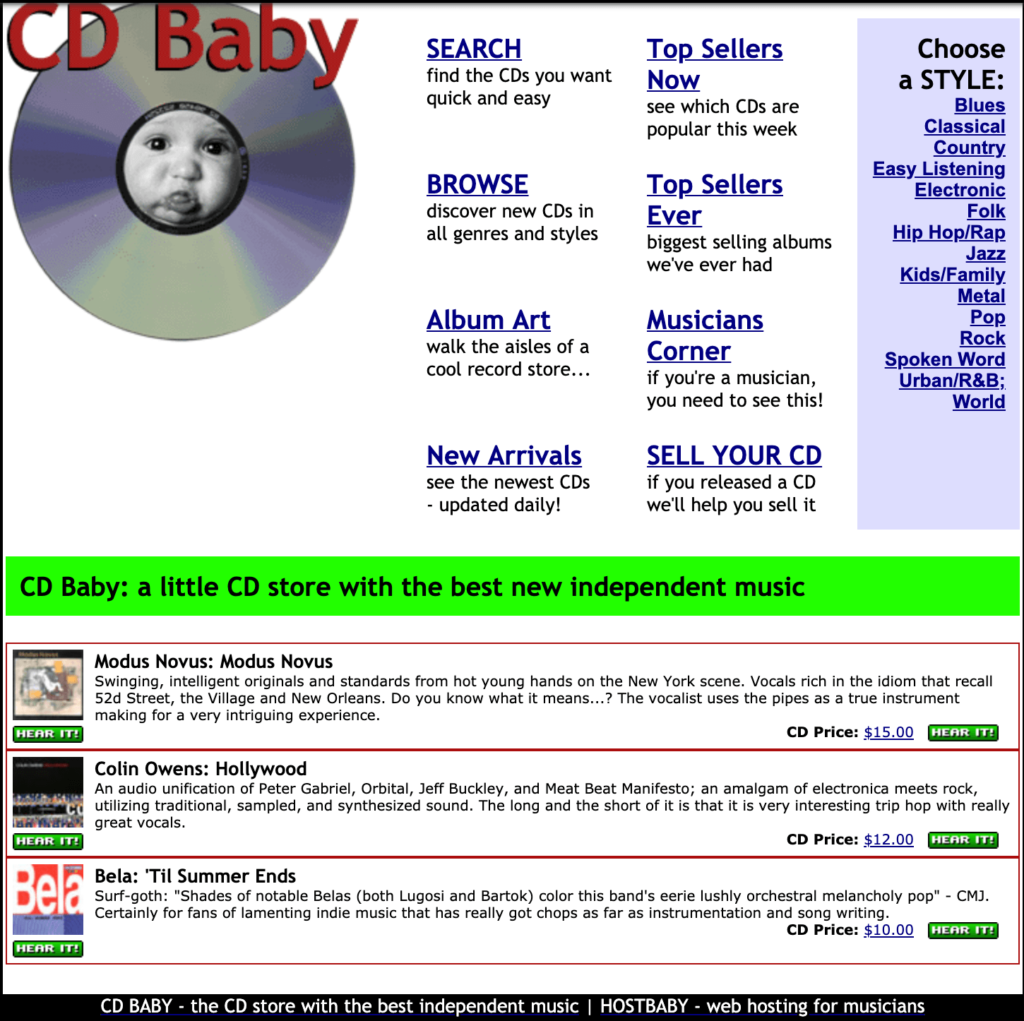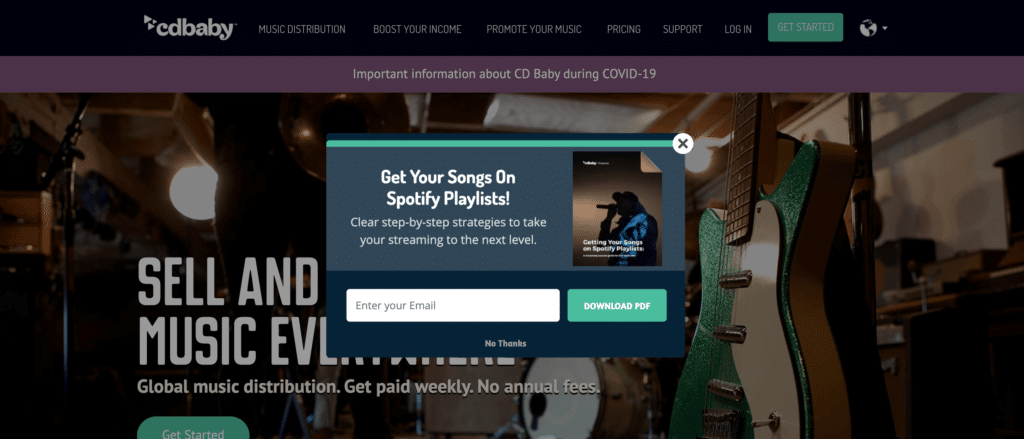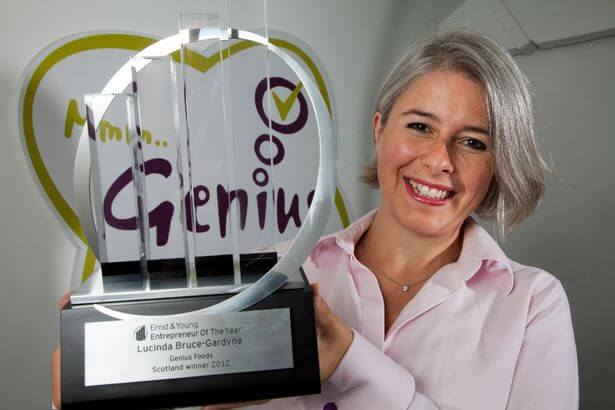Today, entrepreneurship has become a pretty convoluted concept. If you search for the term “entrepreneur” on LinkedIn, for example, you’ll get all sorts of results.
You’ll find people who brand themselves as entrepreneurs—right out of the gate after graduating college. Then there are freelancers, part-time hobbyists, authorpreneurs, and wannapreneurs who also roll by the title of “entrepreneurs.”
Entrepreneurship, more than anything else, is a mindset. Being an entrepreneur is a high-risk, high-reward path into the world of business that could lead you to fail—or fly. We’re not exaggerating either. CB Insights reports that 70% of all startups fail, usually within the second year of their inception.1
And while that sounds downright terrifying to most people, a certain group of people will look at this and say, “Yes, this makes me want to leave my cozy salaried life to start something that demands 150% of their attention 24/7.”
To be an entrepreneur, you clearly have to be comfortable being uncomfortable, and vice versa.
That’s perhaps the reason why Peter Drucker, the famous business author, once said, “Whenever you see a successful business, someone once made a courageous decision.”
Keep reading to learn about the entrepreneurs who took a risk—and made it:
- Our own founder’s entrepreneurship success story
- Entrepreneurial success story #1: CD Baby
- Entrepreneurial success story #2: Coursera
- Entrepreneurial success story #3: Genius Foods
- Entrepreneurial success story #4: W2O
- Entrepreneurial success story #5: Naked Wines
👀 Did you know employees crave more connection in the workplace? Grab our 2022 state of human connections at work report to get the whole story.
RingCentral’s story: from startup to entrepreneurial success
As a company founded by a Ukrainian immigrant who quit a stable 9–5 job at a Silicon Valley tech startup, we’re no stranger to successful startup stories.
RingCentral would have not existed had Vlad Shmunis—our founder—not questioned the status quo that prevailed in the world of online communication back in 1992.
The same year, Vlad launched his first company, Ring Zero—a desktop software solution for business communications.
After shipping over 25 million copies of software to PC manufacturers, Vlad sold off Ring Zero to Motorola (a Ring Zero customer) in 1998.
He then launched RingCentral in 1999 to replicate his success at Ring Zero and create something even bigger and better.
All this to say, RingCentral was once a startup that germinated in the mind of a dreamy-eyed immigrant who had the courage to take a risk.
Today, the majority of RingCentral’s customers come from the small and mid-size business (SMB) segment. And while doing business with them, we’ve come across great examples of startup success stories that have inspired us as a company.
In this post, we pay homage to five examples of inspiring entrepreneurship success stories that unpack the traits of enterprising individuals who persevered through several roadblocks to create immense value to the world around them.
5 stories of great entrepreneurship success
Let’s begin with the entrepreneurship success story of a company that started a year before RingCentral.
1. CD Baby’s origin story is music to our ears
Before he launched CD Baby, Derek Sivers’ life was a circus.
And we don’t mean it figuratively—Derek actually worked as a professional musician (he was more like a ringmaster, but with a guitar) in a Boston-based circus for 10 years. He made $75 to 100 per show in the circus before he launched his own music band called Hit Me.
His band’s songs played in radio stations across the US, but it was tough for them to sell their CDs to people throughout the country who loved their music.
It was 1998, and two things that we now take for granted—online retail and music streaming—were almost unheard of.
Derek created a website—CDbaby.com—in order to sell his band’s CDs to his audience. But the online payment gateway hadn’t become mainstream yet, so he still had to rely on mail-in checks and money orders to ship CDs to his customers.
There were a couple of big online players in the market like musicboulevard.com and CDNow.com who only partnered with major music labels—not with indie bands like Derek’s.
But instead of complaining about it, Derek decided to learn how to make his website work so that he could sell his CDs online.

A 2004 version of CDbaby.com’s website that Derek created on his own
After three months of trial and error, he was finally able to embed a fully functional “buy now” button on his website that allowed people all over the US to order CDs online.2

CD Baby’s website today
That decision to scratch his own itch turned out to be an accidental entrepreneurship journey for Derek.
Not only did he begin to sell his CDs to people all across the US, Derek also started getting requests from other independent musicians to list their CDs on his website. Eventually, CDbaby.com became a popular destination for like-minded musicians to sell their CDs online.
In 2008, Derek sold off the company to Disc Makers for $22 million and gave the proceeds to a charitable trust for music education.
Today, CDBaby is the world’s largest independent music distributor with over 650,000 artists. The platform also partners with 150+ music streaming services including Apple Music, Spotify, YouTube, and Amazon.
As the company has grown to become a team of 250+ employees, CDBaby has made it a priority to keep meetings under control. One way the team does this is by having a simple scheduling system that everyone can use to book meeting spaces and huddle rooms without stepping on each other’s toes—just by using RingCentral Rooms™ and an iPad!
Takeaway
In entrepreneurship, every opportunity that you have to perfect your craft is a worthwhile experience.
As an ambitious musician, Derek didn’t give up on his dreams—he just waited for the right time to take the plunge.
The 10 years that he spent playing music in the circus gave him the confidence to get off the grid as a solo artist and prepared him for the entrepreneurship journey that he had never planned.
2. Coursera heralded a new era of online learning by pure chance
The founding story of Coursera perfectly fits the value creation part of entrepreneurship that we talked about earlier.
Coursera was co-founded in 2011 by Daphne Koller and Andrew Ng, both professors at Stanford University at the time.
While working together to help Stanford develop a one-of-a-kind Massive Open Online Course (MOOC) platform, the academicians realized that they both shared a common vision of wanting to make computer science degrees accessible for everyone outside of Stanford.
The project received good traction among students, and both Daphne and Andrew decided to further democratize the learning of computer science for people outside of Stanford for free.
So they did what professors of their caliber typically do—they put their collective efforts into creating an interactive online course that mimicked university learning.
The duo created video lectures, discussion forums, multiple-choice questions, homework assignments, and grade points for students to pass a course.
Until that point, Daphne and Andrew had no plans to monetize and market the courses—let alone the thought of converting it into an online learning platform.
Over 100,000 students enrolled in the courses despite knowing very well that they wouldn’t earn any academic credit, which signaled the possibility of a profitable business. And that’s when Daphne and Andrew decided to make something sustainable out of it3.
They reached out to other universities like Princeton, Penn, and Michigan to also join the fray. They built enough momentum for Coursera to attract investors at their own volition.
By 2014, Coursera hired its first CEO (Rick Levin) and began charging its students $30 to $70 for a certified course. The rest, as they say, is history.
As per the latest estimates in 2020, Coursera is valued at $2.5B, boasts 43 million students, and has roped in big enterprises like Adobe and Abu Dhabi School of Government as their customers4.
To scale this growth, communication has been key. Coursera uses one communication platform to send and receive calls and business text messages, and access voicemails and call logs—all in one place:
In 2018, Daphne parted ways with Coursera to found another company called Insitro (a tech-based drug discovery and development company). Andrew founded two other companies—deeplearning.ai and Landing AI—and continues to serve as Chairperson at Coursera.
Takeaway
When you set out to do something good in the world, the whole universe just might conspire in helping you to achieve it.
It’s certainly been the case for Andrew and Daphne, who thought that the world needed more computer science experts outside of prestigious Ivy League universities.
And by virtue of democratizing education for all, they found wealth, fame, and their lives’ second calling to start other knowledge-based businesses similar to Coursera.
3. Genius Foods’ appetizing story of growth
Necessity is indeed the mother of invention. And this story of a mother-turned-entrepreneur just goes on to prove that further.
Lucinda Bruce-Gardyne was the average pie-baking English mom from Edinburgh before founding Genius Gluten-Free Foods. She decided to start the company in 2009 only after her son was diagnosed as gluten intolerant.
The painful realization that her son was deprived of the simple every day joy of eating bread—a staple English food—pushed Lucinda to innovate a formula for inventing gluten-free bread.
And although Lucinda was a trained physiologist and a chef, coming up with a gluten-free formula to bake breads wasn’t exactly a cakewalk for her.
She toiled for nearly two years experimenting with different baking methods. Lucinda would often bake as many as 14 types of bread loaves for her children to try on.
During her many kitchen experiments, she broke her oven twice. But finally in 2009, her hard work paid off and Lucinda found the perfect recipe to bake gluten-free breads that tasted just as good as traditional breads.
And just 15 months after Genius Foods hit the shelves, the company was valued at over $13 million—one of the most successful launches in the gluten-free market segment in history5.
From 2013–2015, Genius Foods acquired four other bakeries in the UK region to expand its dominance as the market leader in the gluten-free food segment.
In the recent years, Genius Foods has grown to occupy a formidable 51% market share in the UK’s gluten-free bread market and has expanded its product presence across France, Germany, the Netherlands, Australia, and the UAE.
As a company that has grown at breakneck speed, Genius Foods has never lost sight of the importance of making it easy for the whole team to keep in touch with each other. One way the team achieves this is by keeping all of its conversations unified through a single platform, keeping their messaging, phone service, and video conferencing together in one app.
Takeaway
Fresh ideas can come from anywhere—you just have to pay attention to the little voice in you that asks you to take action when a problem persists.
Had it been for any other suburban mom, she would have perhaps cajoled her son and provided him with gluten-free products from other food categories. But Lucinda saw an opportunity in a crisis that proved to be a great opportunity—not just for her kids but for a global market.
4. W2O’s healthy rise as a multi-million dollar company
When an invisible virus cripples the world, every society’s eyes turn to healthcare institutions.
But who helps healthcare organizations when they need a cure for their headaches—like helping them with their marketing and public relations (PR) requirements?
Perhaps the best person to answer that would be Jim Weiss, who in 2001 founded W2O—a PR and marketing communications that specifically caters to healthcare orgs.
When he launched W2O, he was the one-person marketing consultant in his firm. He probably had no idea that one day, his company would grow so big that it would employ 1,300 people in 13 offices across the US and Europe.
Jim had a well-paying job in the PR world where he created successful PR campaigns for brands like Aspirin, Pepto-Bismol, Sanofi, Campo, and Rilutek.
But inspired by an itch to do something bigger than what he was able to do at the time, Weiss decided to launch a full-scale consulting agency that was fully in his control.
For the next few years, he built W2O to deliver bespoke digital marketing and analytics solutions, mostly to healthcare brands like Genentech and Roche Diagnostics.
Today, W2O partners with 23 of the top 25 pharmaceutical organizations in the world—including several Fortune 500 companies6.
But W2O’s growth wasn’t immune to a founder’s struggles. Right after 2008’s economic downturn, Jim’s business nosedived because of the deteriorating finances in the healthcare industry.
But instead of downsizing or folding up, he decided to diversify his services to other industry verticals.
In 2009, W2O acquired two media agencies—ODA and Common Sense Media Group—and extended its marketing services to clients outside of the healthcare industry, including brands like South by Southwest.
Over the years, W2O has acquired 12 more companies from across all industries ranging from creative and digital marketing, social media, customer relationship management (CRM), scientific and medical marketing communications, and medical education.
In 2019, W2O reported the total annual revenue of $223M—an impressive year-on-year double-digit revenue growth for the seventeenth consecutive year.
How does it keep up with this breakneck growth? W2O uses video conferencing strategically to connect its agency network across 13 global offices, collaborate seamlessly, and keep its communications unified:
Takeaway
Don’t underestimate the power of one person’s thinking to change the world.
When you first think of starting a business, it might sound like an audacious goal to people around you. But a company’s journey to becoming a million-dollar organization starts with a simple imagination.
Entrepreneurship is like building a ship that doesn’t just create wealth for the captain, it creates opportunities and access to upward social mobility for people who join the entrepreneur in the sail.
5. Naked Wines’ founder finds a new spirit in the face of failure
This is the story of Naked Wines’ founder Rowan Gormley who took one of the world’s oldest products—wines—and turned it into a online business empire.
And like other accidental entrepreneurs in the list, Rowan would have never founded Naked Wines had he not been let go by Virgin Wines, his former employer.
It began when Rowan, a South African native who moved to the UK to work as an accountant in private equity, landed an opportunity to work for Richard Branson—the British business magnate.
For the first few years, Rowan helped Branson grow Virgin Money—a financial services business—and later took the role of growing another business from the ground up: Virgin Wines.
But just when he grew Virgin Wines to become a profitable online venture, Direct Wines acquired Branson’s wine subsidiary in 2005 and handed Rowan a dismissal letter.
So, Rowan decided to set up a business to rival Virgin Wines. He launched Naked Wines three years later, in 2008.
Unlike its other counterparts, Naked Wines introduced an innovative idea of crowdfunding the online wine business. The company asked its customers to become “angels”—subscribers who paid a recurring amount of money to buy their choice of wine brands for a discounted price.
Naked Wines paid the subscription money to independent wine producers in advance after taking their pay cut—allowing the vineyards to focus on the craft of making good quality wines.
By the recent estimates, Naked Wines today has more than 200,000 customers, out of which over 100,000 are angels.7
In course of its global expansion, Naked Wines adopted RingCentral to connect its UK and US offices for better communication and collaboration. The company uses RingCentral’s tailored solutions to offer prompt services to its angels and manage its busy phone lines.
Takeaway
Don’t let others validate your worth.
Rowan took Tony Laithwaite’s—Direct Wines’ owner—decision to fire him personally, but he didn’t let that incident define his destiny.
Instead, he channeled his energy into building something bigger and better that wine connoisseurs and manufacturers around the world love.
Which of these entrepreneurship success stories is your favorite?
Although the above-mentioned entrepreneurship success stories are different in nature, the gist of all these stories is the same—every great business was once an idea in someone’s head.
The only difference between an aspiring entrepreneur and a successful entrepreneur is that the latter goes all out to execute on their ideas, often at the risk of losing it all.
And most importantly, hardships are part and parcel of an entrepreneurial journey. Real entrepreneurs see those obstacles as a stepping stone to their success and overcome them as a way to grow their business.
Which entrepreneur’s story will inspire you?
1 cbinsights.com/research/startup-failure-post-mortem
2 businessofsoftware.org/2015/02/derek-sivers-philosophy-customer-service/
3 blog.coursera.org/a-new-challenge
4 forbes.com/sites/susanadams/2020/07/17/online-learning-platform-coursera-raises-130-million-at-reported-25-billion-valuation/#2472e9bf688f
5 foodmanufacture.co.uk/Article/2010/09/13/Genius-gluten-free-brand-is-worth-10m-reveals-Finsbury-Food-Group
6 businesswire.com/news/home/20200520005127/en/W2O-Reports-18th-Consecutive-Year-Double-Digit-Growth
7 us.nakedwines.com/angels
Originally published Jul 01, 2020, updated May 05, 2022





